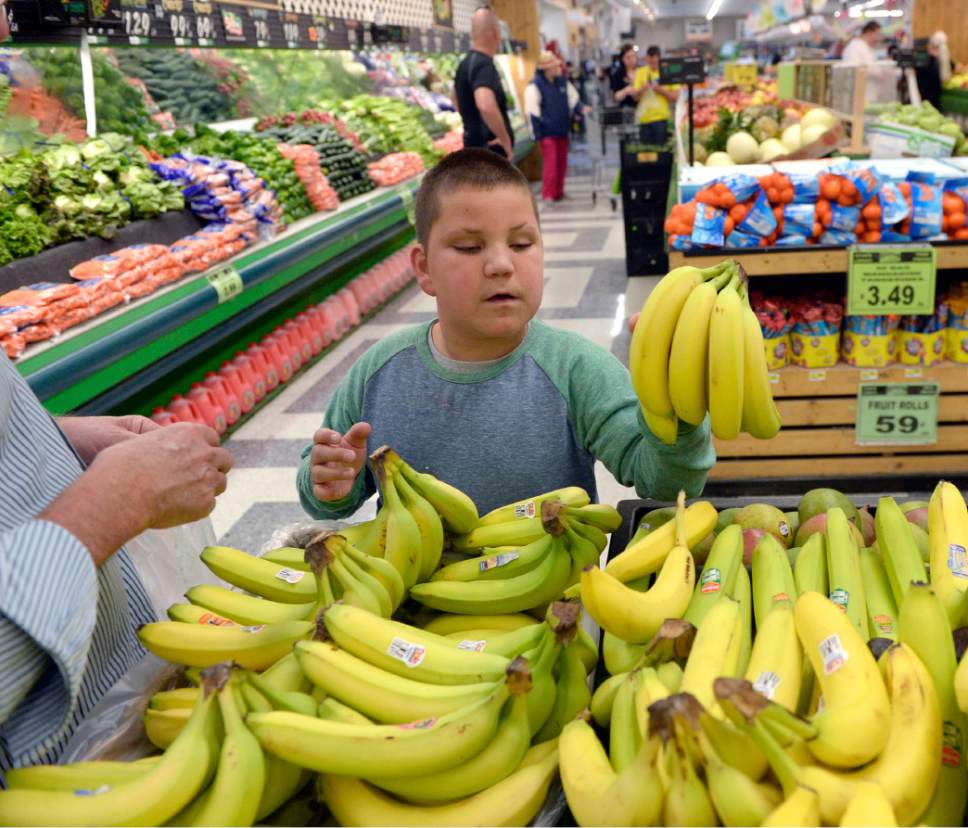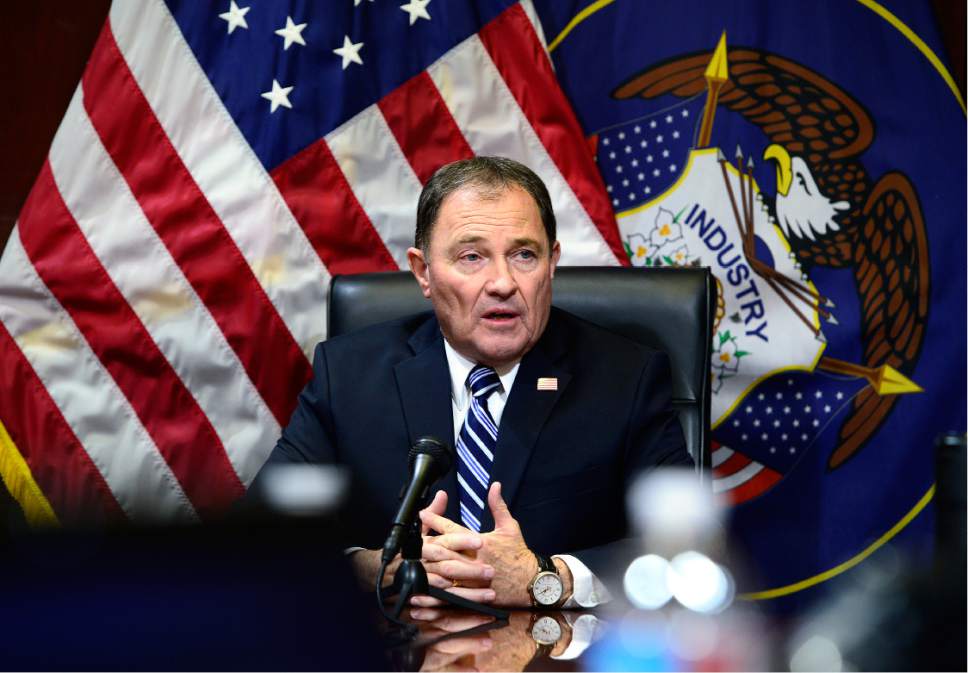This is an archived article that was published on sltrib.com in 2017, and information in the article may be outdated. It is provided only for personal research purposes and may not be reprinted.
Gov. Gary Herbert says he won't stand in the way of a legislative plan to raise the sales tax on food — if steps are taken to help the poor who could be hurt the most.
If such safeguards are included, he said he "would not be opposed" to the proposal.
That comes as Republican lawmakers are trying to finalize a possible tax reform package, with only five working days remaining in this year's Legislature. House Republicans met Thursday night in a closed-door caucus to discuss options.
Restoring the full sales tax on food is one option receiving close scrutiny. In 2006 and 2007, Utah's tax on food was cut from 4.75 percent to 1.75 percent, a feature of tax reform pushed by then-Gov. Jon Huntsman and then-House Speaker Greg Curtis.
Herbert said raising the tax on food may make sense because Utah's tax base — the range of income and items subject to tax — has been shrinking.
He said the state's gross domestic product (GDP) "is not being taxed to the level that it was in the past. We used to get about 72 percent of our GDP or economic growth being taxed, now it's closer to 40 percent. So we really have narrowed the base. That creates pressure to raise the rates."
The governor said, "Putting the sales tax back on food and lowering the overall rate [for all items] is a possibility. If we do that, I think we need to make sure those who are impoverished … those most vulnerable among us need to be protected from any harm and additional costs."
When asked if discussing raising the food tax instead of removing other tax exemptions rewards big political contributors at the cost of the poor, Herbert said, "No, this is a case of let's see what's the best tax policy to help the people of Utah."
He added, "You need a tax policy that does not inhibit the growth of the economy. The best thing you can do for a poor person is give them a job" — something he said is made more possible with lower tax rates and a broader tax base.
Legislative leaders have said steps they are considering to help the poor if the food tax is raised include creating an earned income tax credit for them, changing income tax to charge the poor less and the rich more, and a proposal to retain a lower tax rate on healthy staple foods while raising the tax on "junk foods."
About that latter proposal, Herbert said trying to tax healthy food and junk food at different levels could be too complex to administer easily. Also, "I'm a little reluctant to have government step in and tell you what to eat, and how to eat."
Because time is short, Herbert also said he's willing to work with the Legislature through the coming year to develop tax reforms that make sense.
Democrats have serious concerns about the way Republicans seem to be rushing forward with no public input and zero consultation with the minority party. They also have problems with the prospect of raising the food tax.
"We are struggling," said Sen. Luz Escamillia, D-Salt Lake City, with a tax that could hurt the poor, who pay a disproportionate share of their income for food.
She said Democrats have "serious concerns with the food tax," but "We haven't seen their proposals, so it's hard for us to say anything."
Escamilla said "We are waiting to understand" how Republicans hope to lessen impacts on low-income residents.
Republican lawmakers, who control the Legislature with supermajorities in both chambers, have said they want to enact tax reform to smooth out the volatility of the current structure. But it happens to come at a time when the group Our Schools Now is trying to get a measure on the 2018 ballot to raise the income tax rate from the current 5 percent to 5.875 percent.
The ballot initiative would generate an estimated $750 million to be infused in schools in an effort to lift Utah from last-in-the-nation in per-pupil spending.
Republican lawmakers and the governor oppose the initiative, saying that an increase in the income tax would hurt economic development efforts.
When Huntsman pushed the food tax cuts a decade ago, he also cut income tax rates from 7 percent to 5 percent. Most Utahns at the time paid the top rate because it kicked in at very low income levels after years of inflation without indexing.





